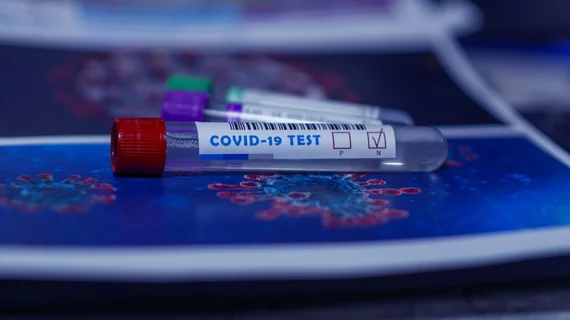Dapagliflozin fails to reduce the risk of organ failure or death among COVID-19 patients
Treatment with dapagliflozin does not lead to a significant reduction in the risk of organ failure or death among COVID-19 patients, according to new data presented at ACC.21, the American College of Cardiology’s 70th annual scientific session.
“We already know that SGLT2 inhibitors provide organ protection in patients with Type 2 diabetes, heart failure and chronic kidney disease, and these are the exact same patients who if they contract COVID-19 are at high risk to be hospitalized with serious illness and develop complications, such as organ failure,” principal investigator Mikhail Kosiborod, MD, a cardiologist at Saint Luke's Mid America Heart Institute, said in a statement. “Accordingly, we wanted to see if dapagliflozin may also help with organ protection in patients with cardiometabolic risk factors who are acutely ill and require hospitalization due to COVID-19.”
For the DARA-19 trial, researchers examined data from 1,250 COVID-19 patients who received care from April 2020 to January 2021 at one of 95 locations around the world. While half of the group received dapagliflozin once daily, the remaining patients were given a placebo.
Overall, after 30 days, organ failure or mortality had occurred in 11.2% of patients treated with dapagliflozin and 13.8% of patients treated with the placebo. Looking just at mortality, 6.6% of the dapagliflozin patients died compared to 8.6% of patients in the placebo group.
Dapagliflozin appeared to lead to more favorable outcomes in other ways as well—but none of those differences were viewed as statistically significant. However, the researchers still believe their study led to some fascinating findings. For instance, dapagliflozin did not lead to any new safety issues for COVID-19 patients, which suggests SGLT2 inhibitors do not be discontinued when a COVID diagnosis has been confirmed.
“Our study opens the door to asking additional questions,” Kosiborod added. “The idea for DARE-19 was quite unorthodox when we started—everyone was concentrating on antivirals and anti-inflammatory drugs, so it is fascinating to hypothesize that SGLT2 inhibitors may provide organ protection in acute illness. This should inform future clinical science and hopefully lead to further investigations.”
The team’s analysis was funded by AstraZeneca, the manufacturer that sells dapagliflozin under the name Farxiga.
Additional coverage related to ACC.21 and other industry conferences can be read here.

